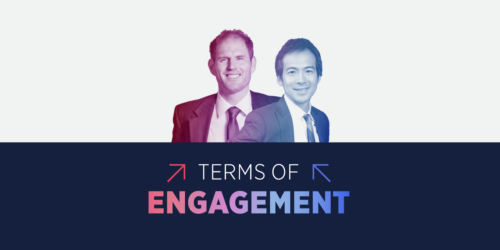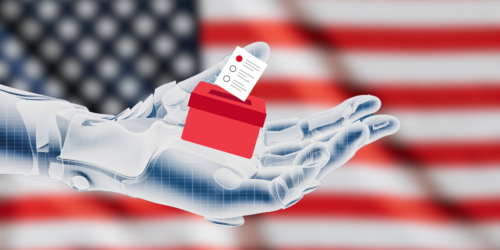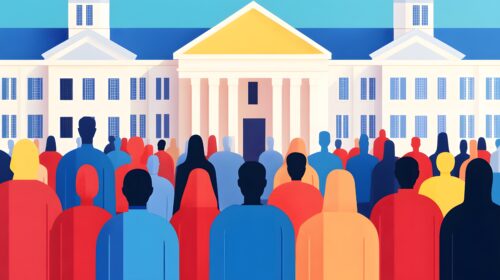In the early days of artificial intelligence (AI), concerns centered on its potential to spread deepfakes and propaganda in politics. Today, however, AI is reshaping the political landscape by transforming how campaigns operate and how candidates communicate. In a recent panel discussion, Bruce Schneier, security technologist and lecturer in public policy at the Harvard Kennedy School, introduced three leaders at the forefront of AI-assisted politics: Jordan Berger of DonorAtlas, Hilary Lehr of Quiller, and Roger Lin of Legislaide. The event was part of the Ash Center’s “Understanding Disruption” series, which explores how various disruptions are affecting domains like education, media, and civil society.
AI-Powered Political Tools
The discussion opened with an overview of how each panelist’s organization is using AI to enhance political and legislative work. Berger, co-founder and CTO of DonorAtlas, described how the tool helps political fundraisers find and research donors more efficiently. “We use the advertising line, ‘Our system is like 1,000 researchers working for you,” he explained.
Quiller, continued CEO Lehr, is essentially the next step in the process, built to assist campaigns and nonprofits with drafting customized content, such as op-eds, fundraising emails, and volunteer scripts. “It knows how you look and feel and sound as a candidate,” she said, “and it can help you draft all the content that you need in a fraction of the time.”
Lin, founder and CEO of Legislaide, introduced his AI-powered platform as a tool to assist local governments with legislative research, drafting, and legal review. The platform aims to address staff shortages in local governments, which are under increasing pressure to accomplish more with fewer resources. “What we want to do is establish a new industry norm by democratizing policy research,” Lin said.
The Role of Humanity
As in any discussion of AI, the conversation turned to the role of humans. Scheier asked the panel where AI outperforms humans and where there’s still room to grow, framing its advantages in terms of four dimensions: speed, scale, scope, and sophistication. All three panelists agreed that AI offers politicians a leg up when it comes to speed and scale. Berger noted that DonorAtlas has created 20 million detailed donor profiles, while Lin shared that Legislaide has reduced research and drafting time for a single piece of legislation from 3-6 months to just days. Still, added Lehr, “Part of what makes politics so human eternally is the fact that it’s about our lives and what we care about and our values, and those are very human things. While AI can support and add speed to our processes … the sophistication, the emotional nuance in that, will always be the human …”
So, where do humans fit in when it comes to these AI tools? “What we really want to emphasize as legislators is that we don’t replace human judgment, we just assist,” said Lin, underscoring that it will be the lawmaker’s name is on the bill, not the AI’s. Similarly, while Quiller can assist with content, Lehr made it clear that people remain in control. “Especially in these early years of AI, we believe very strongly that a human in the loop is absolutely essential before you have direct AI to voter contact.”
Trust, Power, and Ethics
“I think a lot about AI and trust and what has to be done for AI to be trusted,” said Schneier. So, he asked, how have customers come to trust the panelists’ AIs? Or do they?
Berger argued that transparency is key. DonorAtlas ensures that users can always verify where AI-generated insights come from. “When you hover over anything on DonorAtlas, you see the source; it takes you to a URL,” he said. Lehr noted that trust in Quiller is earned: “We’ve really put in the work to bring the space along with us,” she said, describing how Quiller’s product roadmap evolved through close work with early partners.
Another key issue was whether AI levels the playing field for human workers or reinforces existing power structures. “Are you making the activity more democratic, or are you increasing the power differential?” Schneier asked. Berger acknowledged that DonorAtlas most benefits those who are already skilled at fundraising. “We make the best better,” he said. Meanwhile, Legislaide isn’t about making people better, Lin said, but about “taking things off their plate” by lowering barriers to the legislative process.
Finally, Schneier turned to ethics and the moral implications of the technologies. He asked whether the panelists ever turn down customers—and if so, why. Berger noted that all three make public data more ingestible, “but — wink, wink — we’re using it for the right purpose, so it’s fine.” He also clarified that while DonorAtlas is nonpartisan, it turns down clients who don’t align with a strict set of guiding principles, such as those opposed to reproductive rights or in favor of loosening gun laws.
Since Quiller generates content, the moral stakes feel higher. Lehr stressed that their line is not using AI to create misinformation or disinformation to intentionally mislead or create false content. “That’s hard because there’s so much polarization and disagreement over what truth is. But … it starts with articulating our values and working with partners that match that,” she said, adding that they work with Democratic candidates and values-aligned organizations.
Lin was more hesitant to frame Legislaide’s work in moral terms. “AI is only a tool,” he said, emphasizing that the platform is for everyone and focuses on efficiency rather than ethics. Schneier challenged that framing, asking if Legislaide accounts for or mitigates bias in existing laws. “Adjusting the model to be nonbiased is biased,” asserted Lin, adding that they mitigate bias with more robust data and more recent legislation. “The flip side of bias is our values,” Schneier pointed out. “I might want an AI to have a bias toward fairness or kindness or accuracy … The question is not ‘is AI biased?’ but ‘is it biased in the way you want?’”







